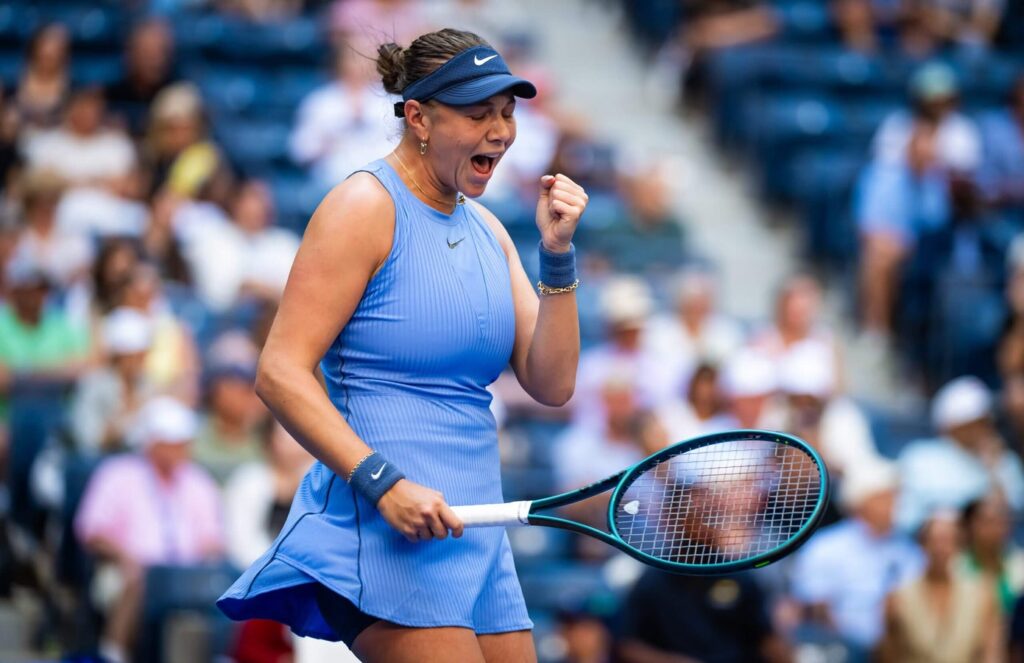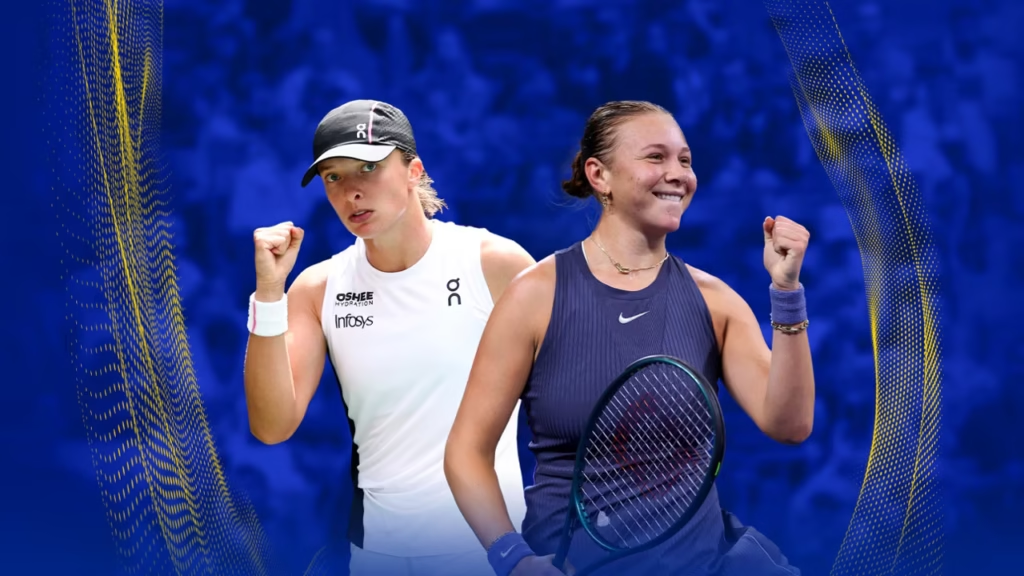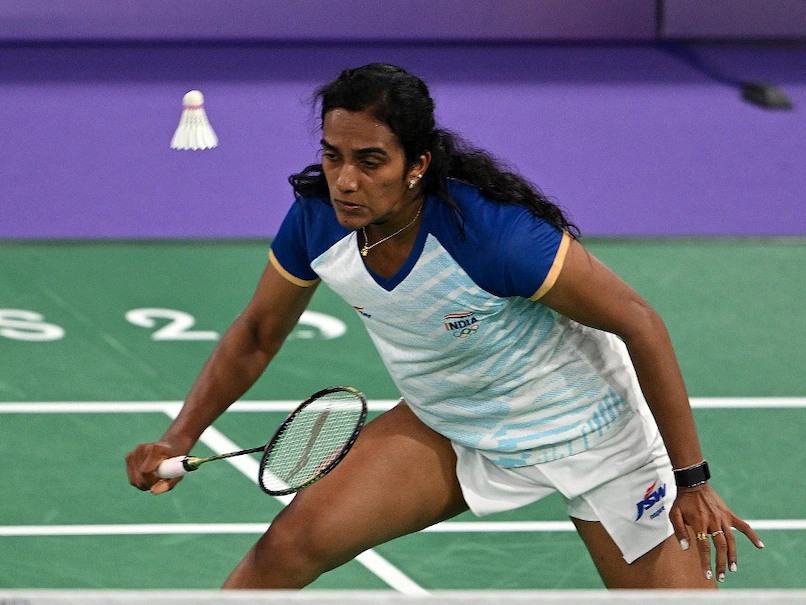When Defeat Feels Final
Imagine stepping onto Centre Court at Wimbledon, the world’s biggest stage, only to walk off an hour later having lost 6-0, 6-0. No games, no foothold, just a blur of points slipping away. That was Amanda Anisimova’s reality in the 2025 Wimbledon final against Iga Świątek. It wasn’t just a loss—it was the kind of defeat that leaves you questioning everything: your game, your mindset, even your place in the sport.
Take a look at the highlights from Amanda Anisimova’s Wimbledon match for a better sense of what really happened on court.
Now think about this: if someone had told her in that very moment of heartbreak that, in just a month, she would face the same opponent again—and win—would she have believed it? Most of us wouldn’t. But that’s where Amanda Anisimova’s resilience stepped in. Anisimova’s story this summer isn’t just about tennis; it’s about how a person can take the deepest disappointment and turn it into the fuel for one of the strongest comebacks we’ve seen in recent years.
In this article brought to you by MyMentalCoach, we will explore Amanda Anisimova’s resilience journey — from her Wimbledon challenges to her inspiring US Open victories over Iga Świątek — uncovering lessons in resilience, mental toughness, and sports comebacks.
The Pain of a Double Bagel: Wimbledon 2025 Final
There are losses in sport, and then there are the kind of defeats that sting long after the score is wiped off the board. Amanda Anisimova’s Wimbledon 2025 final against Iga Świątek was exactly that. A straight 6-0, 6-0 result—what tennis calls a “double bagel.” For fans, commentators, and historians, it became a headline: the most one-sided women’s singles final result in over a century. For Amanda, though, it was far more than a statistic.
Imagine standing under the weight of Centre Court, each game slipping away, the scoreboard frozen on zero. The crowd grows quieter, the cameras zoom closer, and every missed shot feels like it’s echoing around the world. On paper, it looks like domination. In reality, for the player on the other side of the net, it feels like humiliation.
The tennis world judged. Social media judged. Even casual fans judged. It wasn’t just that she lost; it was how she lost. That’s the cruelty of sport at the highest level—one hour of play can suddenly redefine years of hard work. And while everyone else called it “historic,” for Amanda it was deeply personal. Because she wasn’t just losing a match; she was battling the fear that maybe she wasn’t ready for this stage at all.
The Weight of Judgment and Self-Doubt
After Wimbledon, Amanda Anisimova didn’t just walk away with a painful scoreline—she walked away carrying the heavy weight of judgment. The media headlines were ruthless, fans on social platforms didn’t hold back, and even in the hushed corners of tennis commentary, there were whispers about whether she truly belonged among the sport’s elite. That’s the reality of playing at the top: when you win, you’re celebrated; when you stumble, the world questions you.
But perhaps the harshest voice was the one inside her own head. Every athlete knows that self-doubt creeps in louder than the external noise. For Amanda, it must have sounded like a constant replay: Am I good enough? Can I handle this pressure? Will I ever bounce back from being remembered as the girl who lost 6-0, 6-0 in a final?
This is where the real test of a tennis player’s resilience begins—not on the court with the racquet, but off the court in the mind. Because resilience isn’t about brushing off a loss; it’s about sitting with the disappointment, owning it, and then deciding to rise anyway. Mental toughness in tennis often starts in those darkest, loneliest moments, when it feels like the world has already written you off. And Amanda’s strength was not in pretending the pain didn’t exist—it was in facing it head-on.

How She Rebuilt: Lessons from Loss
What makes Amanda Anisimova’s story so powerful is that she didn’t try to bury the Wimbledon final and pretend it never happened. Many athletes would. After all, who wants to relive one of the most painful hours of their career? But Amanda did the opposite—she sat with it. She rewatched the match point by point, studying not just where she went wrong, but why. That takes courage, because watching yourself get outplayed in such a brutal fashion isn’t just technical—it’s emotional.
But she didn’t stop there. She also went back to matches where she had played brilliantly, matches that reminded her of the player she is and the level she can reach. This balance was crucial. By analyzing the loss, she found the gaps in her game. By revisiting her wins, she rebuilt her confidence. It was both science and self-belief—a process of match analysis that became a turning point.
This is the essence of a true comeback story. Resilience isn’t about blind optimism; it’s about learning. It’s about being brutally honest with your weaknesses while holding onto the evidence of your strengths. That’s exactly how athletes build resilience—not by ignoring failure, but by transforming it into a roadmap for growth. And for Amanda, those long hours of reflection turned humiliation into preparation.
Redemption at the US Open: Beating Swiatek
When Amanda Anisimova walked into the US Open quarterfinal against Iga Świątek, the same opponent who had handed her that unforgettable Wimbledon 6-0, 6-0 loss, the stage was set for either redemption or another reminder of heartbreak. This time, Amanda flipped the script. Playing with poise, precision, and a new sense of belief, she took down Świątek 6-4, 6-3. It wasn’t just a win—it was personal closure. For her, it was proof that the humiliation at Wimbledon had been transformed into motivation. The resilience she had been quietly building came alive under the New York lights.
But resilience isn’t about one great performance. It’s about consistency under pressure, and that test came in the semifinal against Naomi Osaka. The match stretched across three sets, demanding every ounce of mental and physical strength. Amanda lost the first set in a tiebreak, fought back to steal the second in another tiebreak, and then outlasted Osaka in the decider 6-7, 7-6, 6-3. It was the kind of battle that defines a player—not just their skills, but their spirit.
These back-to-back wins told a bigger story. Resilience isn’t about bouncing back once; it’s about sustaining belief even when the odds lean against you. Beating Świątek proved she could rewrite her narrative. Beating Osaka proved she could carry that belief all the way to another Grand Slam final. Together, these matches turned Amanda Anisimova’s summer into a symbol of what mental strength in tennis truly looks like—a reminder that comebacks aren’t accidents, they’re built.
Catch the highlights of Amanda’s US Open victory for a better sense of her performance.
What Amanda Anisimova Teaches Us About Resilience
Amanda Anisimova’s summer of 2025 is more than just a story of tennis—it’s like a training guide in resilience in sports. Her journey shows us three powerful truths. First, you have to accept failure instead of running from it. Second, you learn as much from your victories as you do from your defeats—both hold clues to growth. And third, at the highest level, it isn’t raw talent that separates the good from the great, but mental strength. That’s where champions are made.
Just a month earlier, Amanda was judged and ridiculed for being on the wrong side of a historic scoreline. Fast forward to the US Open, and she was being celebrated for her fight, her grit, and her transformation. That’s the power of resilience—it can turn the harshest criticism into the loudest applause.
Her story is a reminder that resilience isn’t about never falling—it’s about rising stronger every single time you do. And the good news? This kind of resilience isn’t just for elite athletes. It’s something you can build too, with the right guidance and training.
At MyMentalCoach, we specialize in helping athletes, students, and professionals develop the same mental toughness that drives champions like Amanda. If you want to build your resilience and unlock your peak performance, book your free 15-minute call today at +91 9823791323.


